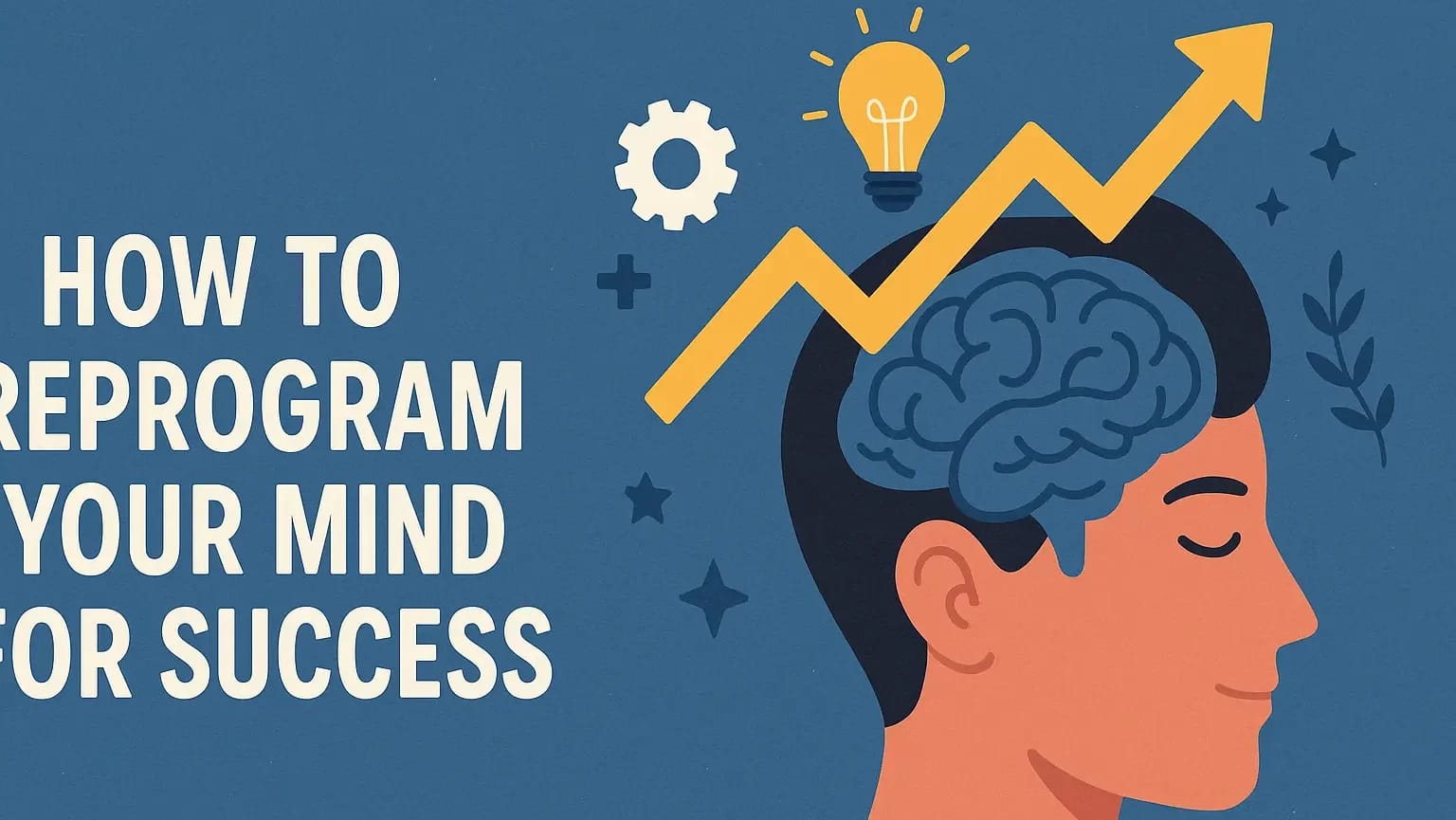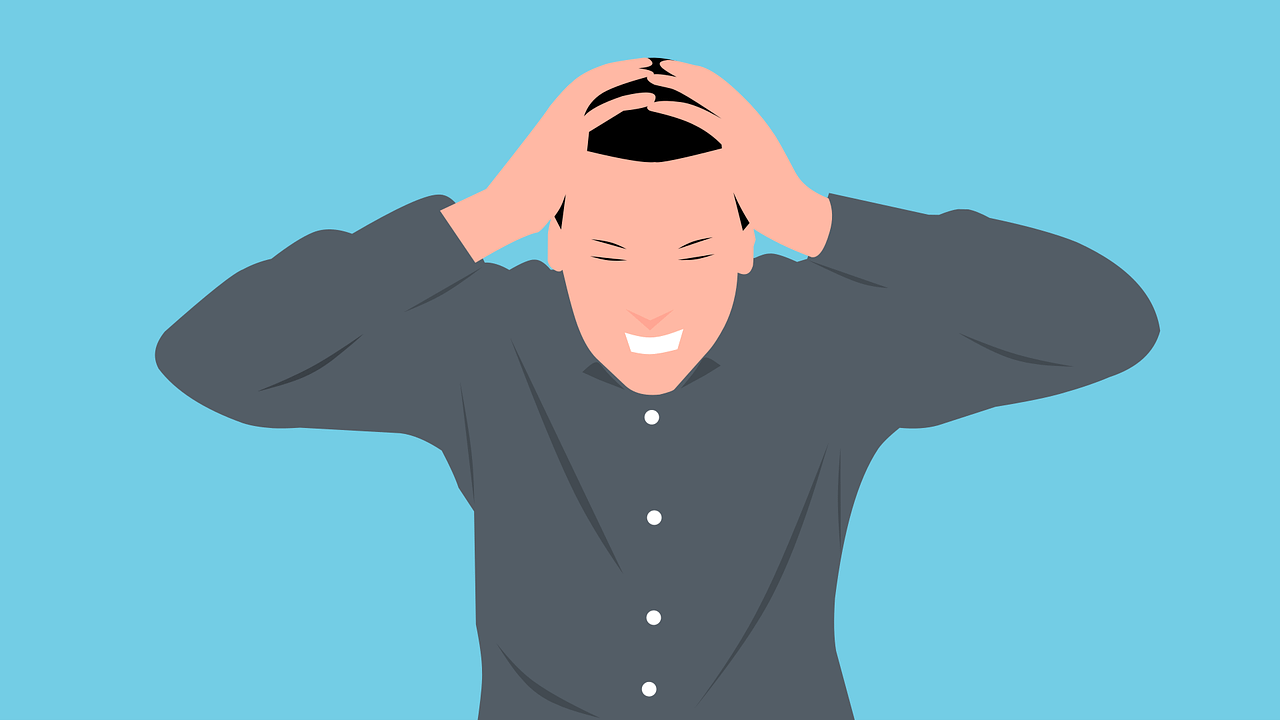You didn’t decide to wake up today, check your phone in the morning, or brush your teeth today. Well, I guess you did because your brain made that decision for you, but you probably didn’t realize it. Your habits control your life and the majority of daily decisions you make.
Researchers at Duke University found that our habits control 40% of our lives.

There are two habits you practice externally, such as video games and social media, and subconscious habits. These are the mindful habits you practice deep within your subconscious mind, such as negative self-talk and judging others.
Our subconscious habits can shape our judgments, emotions, and perceptions of others. If we’re not careful, they can negatively impact our well-being and mindset.
Today, we uncover nine subconscious habits you probably didn’t know you’re guilty of.
1. Comparing yourself to others
Nobody is perfect; we were all born with flaws and insecurities. When we encounter somebody of higher status, wealth, and possession, we compare ourselves to them subconsciously.
Typically, there are two outcomes of comparing ourselves to someone else: to boost our ego or bring somebody else down. Either way, both are equally destructive to our human psyche.

Comparing ourselves to others solely to boost our ego evokes insecurities and arrogance. Comparing ourselves to others in a way that points out their flaws can negatively impact our relationship with the other person.
2. Complaining
In moderation, complaining can be a healthy way to relieve stress by allowing us to vent and blow off steam. It serves as a reset button, where we can temporarily escape life’s mess, release tensions, and return with a clean slate of mind.
Elizabeth Scott from Verywellmind states, “But letting it all out can relieve the inner tension we feel from a difficult situation and help us feel ready to face the next frustration. Sometimes, we just need to blow off steam by expressing ourselves.”

Many of us tend to complain without even realizing it. We often complain about even the slightest things, and even if we don’t voice our complaints out loud, we still experience frustration and stress when we complain to ourselves internally.
The habit of complaining impacts our health physically and mentally in negative ways; it leads to unhappiness and increases stress, a factor in the worst heart diseases known to man. When you complain habitually, you project negativity on others, which deters people from wanting to be with you.
3. Failing to keep yourself accountable
Taking accountability is the key to unlocking productivity, growth, and success. It encourages self-reflection, builds trust, and motivates you to work harder.

Accountability affects every aspect of our lives, including personal growth and relationships with others. When you refuse to take responsibility, you blame others or your surroundings, perpetuating that you’re perfect. This mindset obstructs you from exploring areas in your life that need improvement.
4. Having a fixed mindset
During my sophomore year of high school, I dreamed of playing professionally in the NFL. I worked relentlessly on my craft, spent multiple lonely nights outside, and didn’t let my 5’6″ 120lbs frame hold me back. Although I wasn’t born with great genetics and athleticism, I was willing to improve in every possible way.
A fixed mindset undermines success and self-worth by creating a hopeless environment where improvement seems impossible. You believe all odds are stacked against you, which prevents you from taking actionable steps to improve. Your unwillingness to grow keeps you stagnant and convinces you that you provide no value.

Everyone can grow and improve if they willingly put in the time and effort. Playing the guitar, running a successful business, and even playing in the NFL is possible, but you must believe in yourself first. The next time you catch yourself saying you can’t do something, reframe that and ask how you can do it.
5. Hating more than celebrating
Humans were inevitably born with needs and wants. There will always be somebody with something we desire, sparking our human tendency of envy and jealousy. It could be wealth, possessions, status, or even an emotion they’re feeling.
Jealousy and envy are internal diseases that breed bitterness and unhappiness. By being jealous of another person, you subconsciously stir up hate towards yourself and that other person. This hate will eventually escalate and reach its breaking point, resulting in harmful actions to yourself and the other person.

By cultivating more love and gratitude, we can reverse the innate jealousy and envy we were born with. We can do this by celebrating more than we hate, uplifting more than we downplay, and appreciating more than we depreciate.
6. Worrying about what others are thinking about you
Researchers Julie Tseng and Jordan Poppenk, in a 2020 study, found that an average human generates over 6,000 thoughts in a day.
Unsurprisingly, most of the 6,000 thoughts we have daily consist of judgments, which have been crucial for human survival for thousands of years. Our earliest ancestors used judgments to distinguish between right and wrong and to identify potential danger.

Fast forward to the present day, and our judgment continues to impact our daily lives. If we judge people, that means other people are judging us back. However, this doesn’t necessarily mean we should take these judgments seriously. If we do, we live according to their lens and not through our perspective. We live to please them and not ourselves.
Allowing other people’s perceptions about us to leave an impact disturbs our peace. Our worth is undiscoverable if we believe the false statements made by other people. Even if these opinions are false, they can weigh us down if we let them. With seven billion people on this planet, chances are there will be somebody who has something to say about you.
7. Dwelling on stress
Stress is a natural and crucial response to danger that every human experiences. The demands of meeting deadlines, paying bills, and fulfilling responsibilities at home are all examples of life stressors that can disrupt our mental well-being. The real issue, however, is not the stress itself but our tendency to continue dwelling on it instead of finding ways to manage it effectively.
Jim Porter from The American Institute of Stress wrote, “Managing stress and taking care of our health always comes DEAD last. And as a result, our perception is that there is NEVER enough time in the day to take care of our own needs.”

By continuing to dwell on stress, you put your health in further jeopardy. The more you stress, the more your health spirals downward. Of course, stress is an inevitable part of life, but we must adopt practices that help us manage it rather than let it control us.
8. Feeding on external validation
I once stumbled upon an Instagram Model’s page with millions of followers. When I checked the comment section of her most recent post, I immediately learned why she had such a big following. Nearly all of her posts consisted of comments coming from young adults to middle-aged men overly sexualizing and putting her on a pedestal.
Looking at her account once more, I realized the validations she received online inflated her ego and made her think the world revolved around her.

Constantly seeking and receiving external validation increases our ego. We enjoy receiving compliments and feeling appreciated because it gives us a sense of accomplishment. However, relying on external validation to determine our worth can make us overly dependent on others’ opinions. This dependency results in arrogance and pride, making it harder for us to stand independently.
9. Striving for perfectionism
Habits shape who we are, but it’s subconscious habits we mindlessly do that make an enormous impact. Subconsciously, most of us have the habit of striving to be perfect without even realizing it. We may strive for perfect hair in the morning, a superb morning routine, or flawless grades in school, not knowing the mental toll it’s having on us.
We should strive to be immaculate in everything we do, but striving to be perfect in every area of our lives will pile more stress onto our plate. Instead of bringing ourselves closer to success, we bring ourselves closer to burnout by striving for these unrealistic and unattainable goals.

Those constantly striving for perfection have a much different approach to failure. Failure carries a heavier weight to perfectionists than non-perfectionists. If they don’t meet their expectations, this failure causes them to suffer mentally and resort to self-deprecation.
Conclusion
Our habits are like individual rail tracks; each track appears small and insignificant, but if you stack them against each other, they stretch for miles and play a pivotal role in a country’s economy. Some habits affect us physically, while some habits affect our mental clarity.
The habits we practice mindlessly deep within our subconscious play a significant role in our relationships with others, including ourselves. The first step in overcoming any bad habit is to acknowledge that habit. By reading this article, you’ve recognized nine potential bad habits you might’ve been practicing.
Which of these habits are you guilty of the most? What strategies will you use to overcome them?



